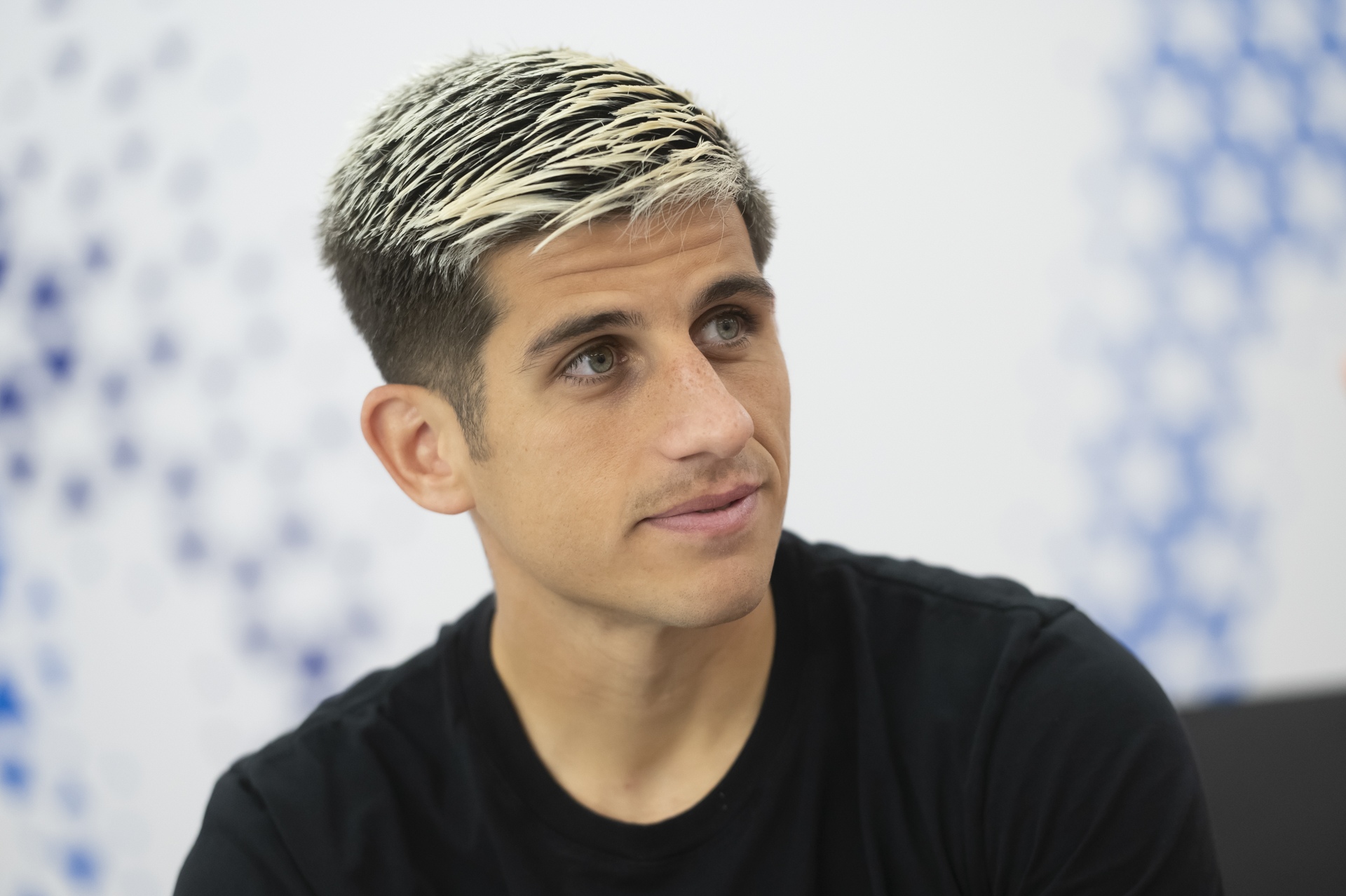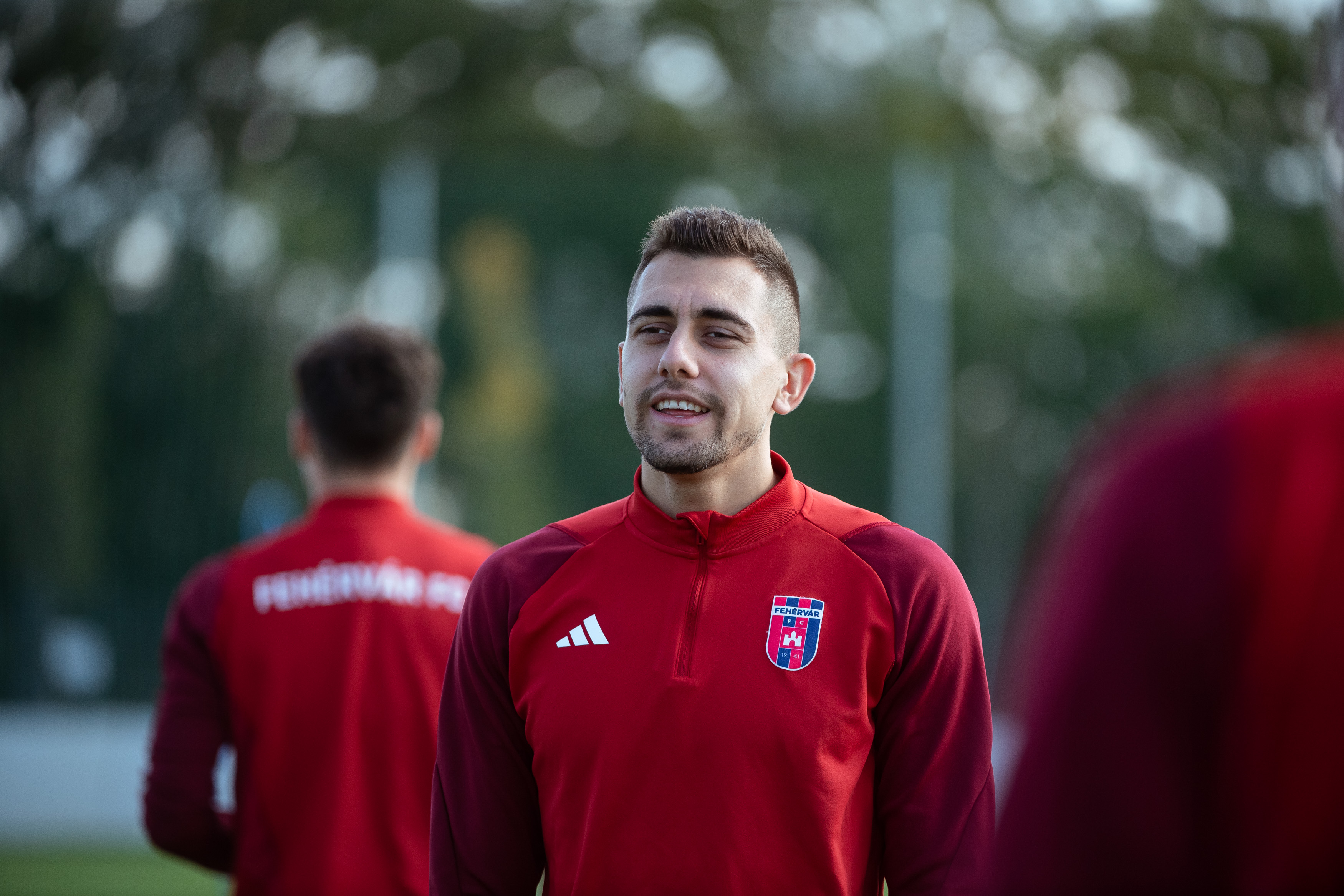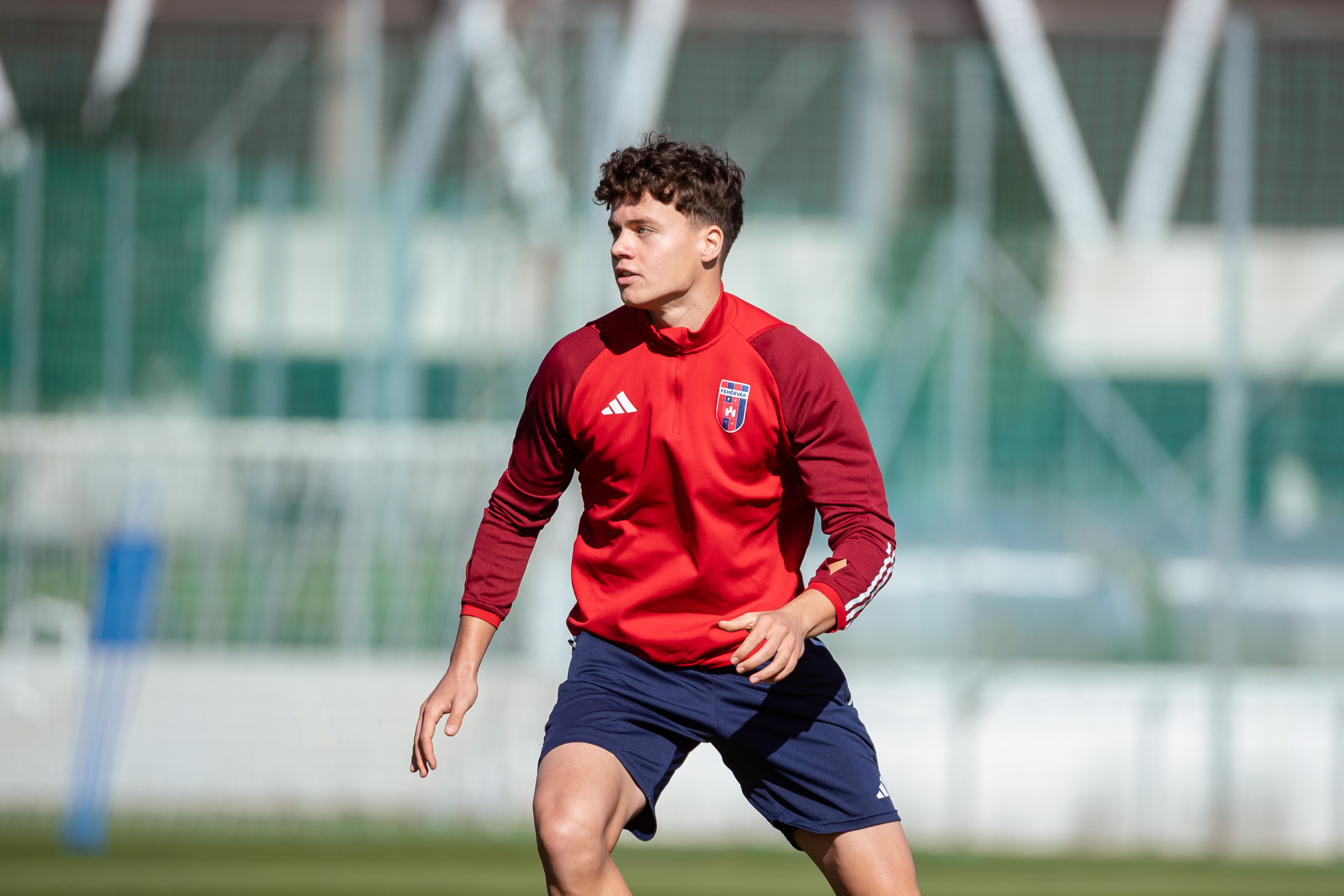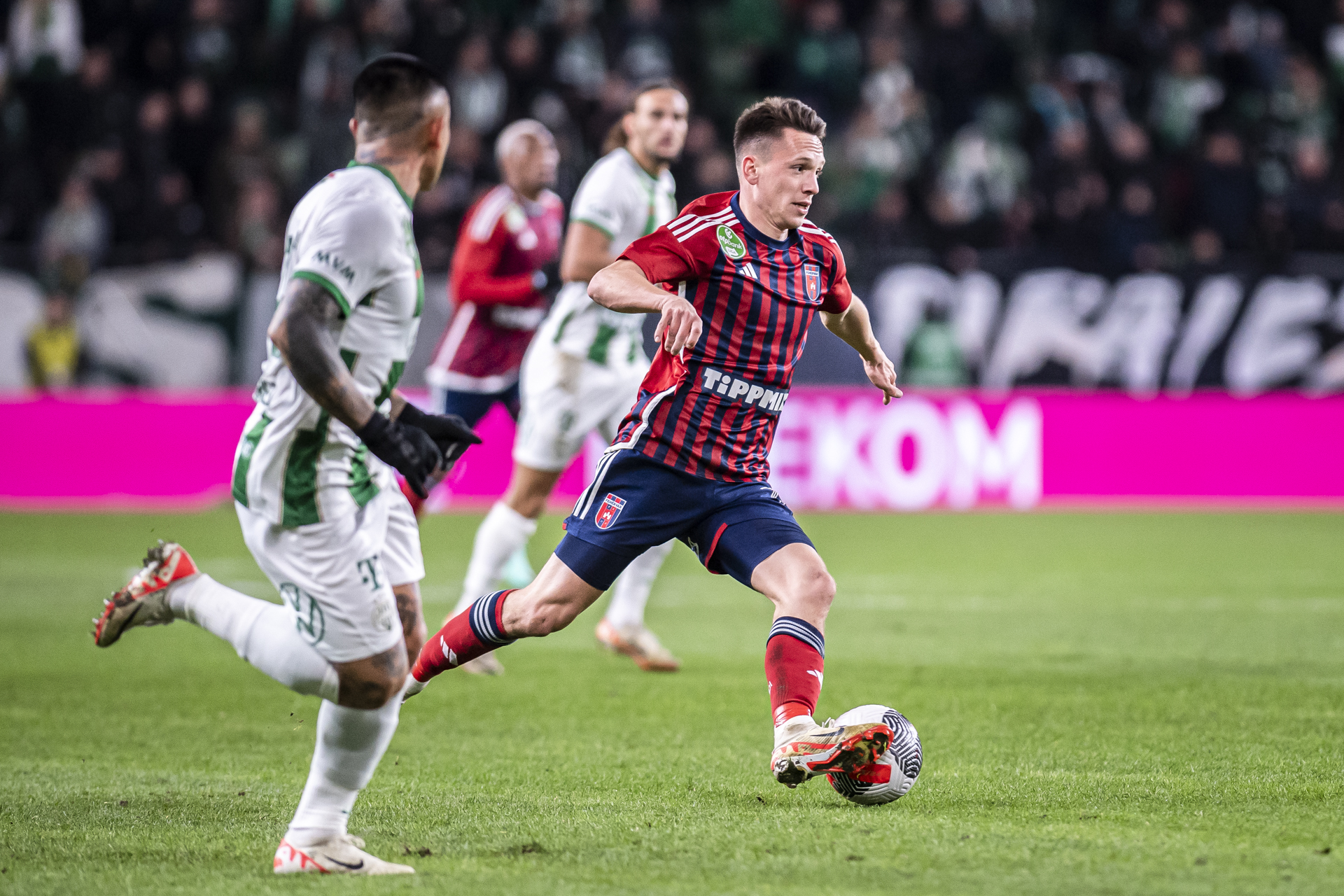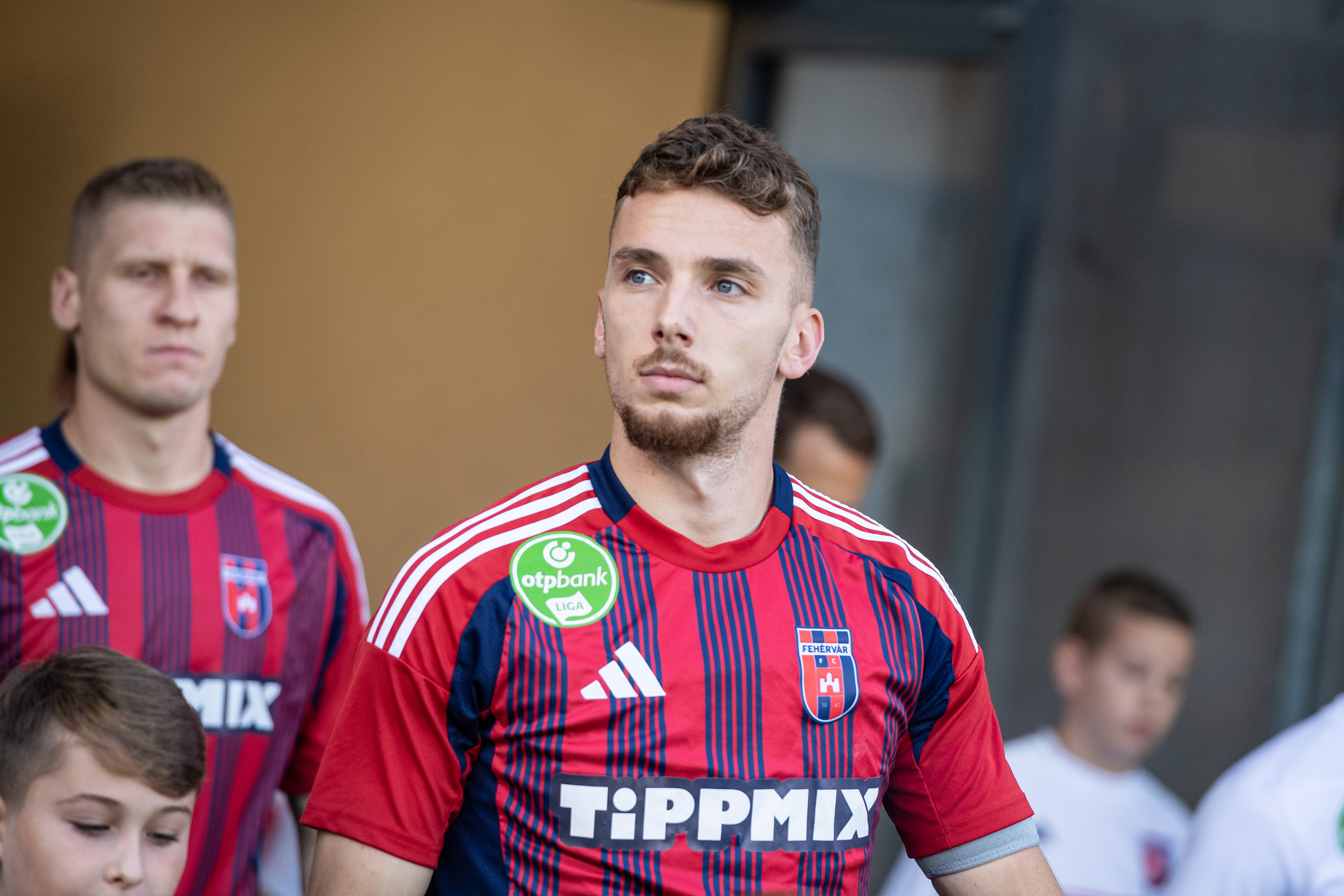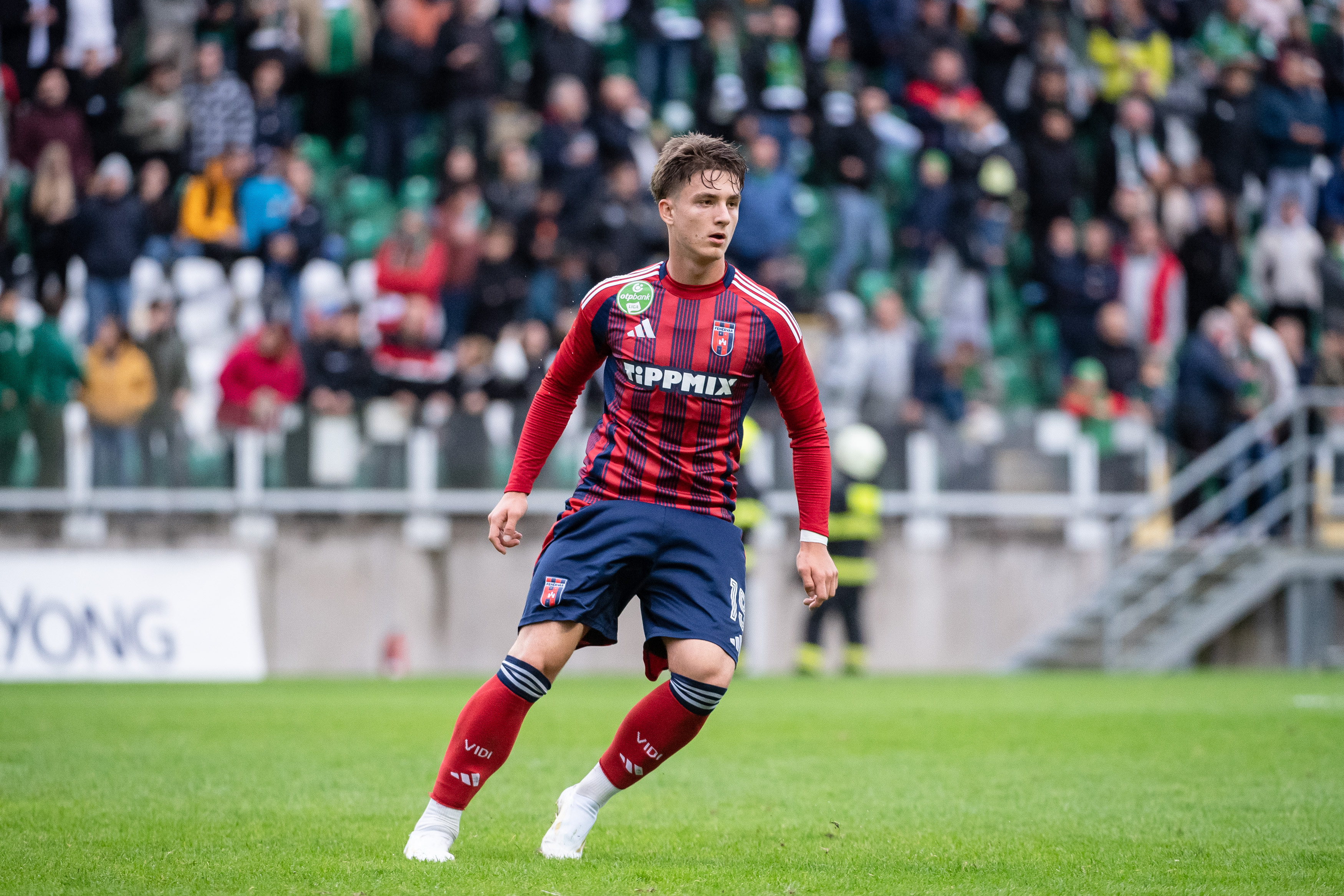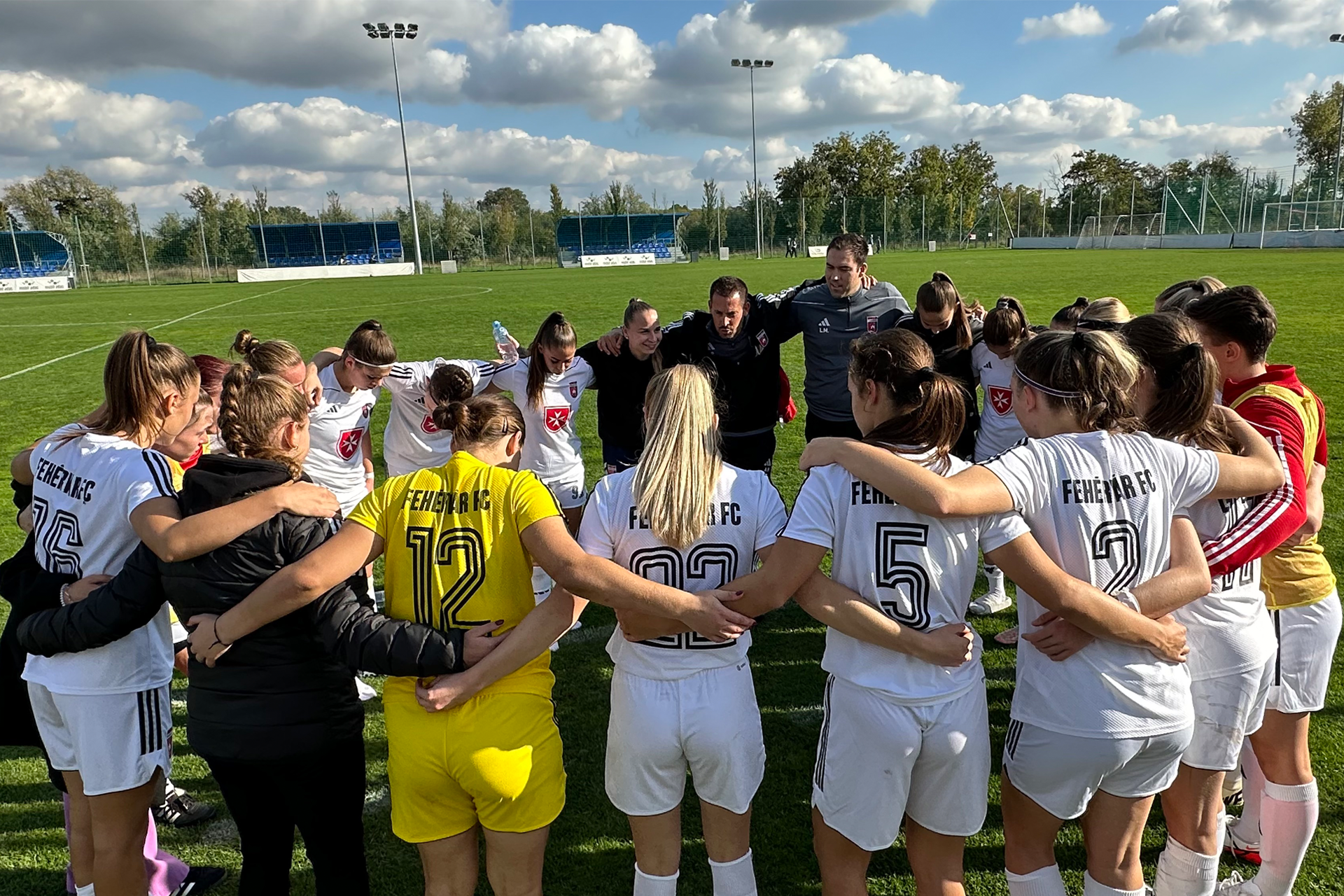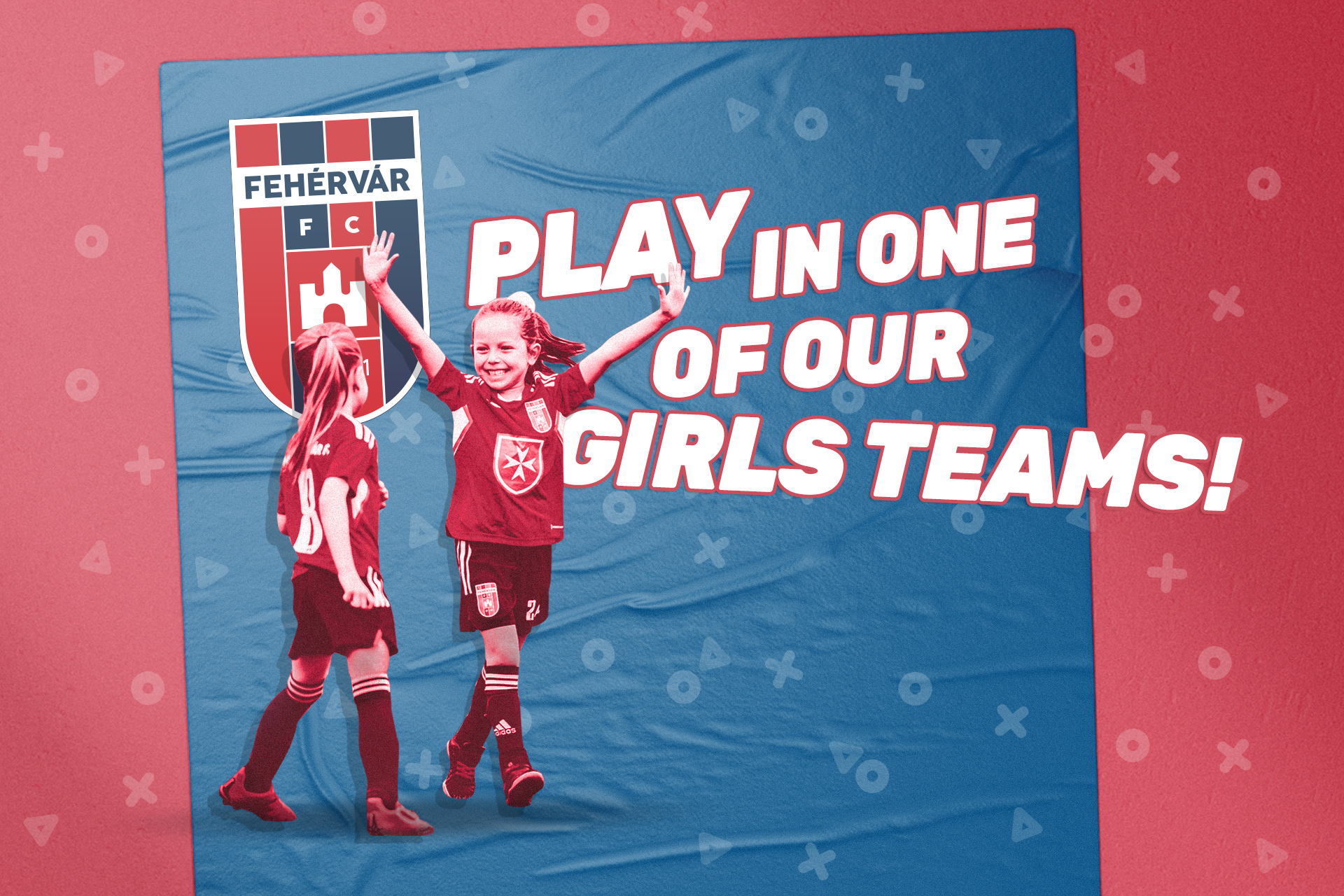We spoke to our Argentine forward at length about his career, his family, his dreams and a bit of Vidi history.
How old were you when you started playing football and why did you choose this sport?
I can't remember exactly, but I was about five when I started playing football at home. And why? Because almost all the kids back home in Argentina play football. Most of my friends were also kicking a ball and I didn't want to miss out on the game (laughs).
Did you have anyone in your family from whom you could inherit a love of sport, who played a sport like you?
My father played football, but not professionally, and my grandfather was an amateur footballer, he was particularly good with the ball. So I inherited my passion for football from them.
Few people may know about you, but you are a dual citizen, holding an Italian passport as well as an Argentine one. Who are your Italian ancestors? My grandfather is of Italian descent, which is why I have an Italian passport. As a child, who were the footballers you looked up to as role models? My favourite player was Pablo Aimar, but I also looked up to Javier Saviola as a child. Like me, they were both short players and I really liked how well they handled the ball. So River Plate was your favourite football team as a kid? Well, yes, you could say that, but my favourite team has always been Boca Juniors (laughs). I was lucky because I had the opportunity to play against the Bombonera twice, it was a great experience to play football there. At a relatively young age, you moved, not only to a new country but also to a new continent when you joined Swedish club AIK. How difficult was it for you to adapt to the new environment? The first period was a bit more difficult, because I was immersed in a completely new culture. However, it was a big help that I wasn't alone, as my girlfriend - who is now my wife - came to Sweden with me. The people were very welcoming and very helpful, so I think I settled in very quickly. Did you have any language problems? Luckily not, because a lot of people in Sweden speak English, and I was preparing to be a professional footballer from a young age. And one of the important things is to speak English, because you never know where life will take you, but if you speak English you won't get lost in almost any football dressing room in the world. Of course, some of the Swedish language stuck with me during my time there. And what about the Hungarian? I can now say "good morning", "good afternoon", "hi". I guess I'm not the first foreigner to tell you that Hungarian is very difficult, but I'm trying to learn the basics, because it's important for me to be able to speak in the language of the country I'm in, or at least to say hello. Did you like going to school? Were you a good student? Yes, I liked school and I tried to study well, but I didn't excel in all subjects (laughs). My favourite subjects were history and physical education. Apart from football, I also really liked running. The fact that history was close to me helped me to be open to new cultures, which is probably why it was relatively easy to fit in at all my previous clubs. How did your parents feel about your childhood dream of becoming a professional footballer? I am very lucky because they have always supported me in everything and at all times to achieve my dreams. Without them, I would definitely not be here today, I owe them a lot of thanks, they have sacrificed so much for me. They're proud of me, they always show my friends at home the footage of my games. Do your parents ever watch you live, either here in Europe or when you played in America? Oh, of course! Family is very important to me and so far I think they have seen me play live for all my teams. They travel a lot and like I said, their support is very important to me. Of all the countries where you have played football, which has been the most different compared to your home country? Probably Sweden. Not only is the culture very different from Argentina, but the climate is completely different. Swedish winters can be brutally cold, and the long periods of darkness were also very strange. For example, the first time I saw snow in Sweden, the morning it snowed, I remember excitedly telling my girlfriend to come to the window immediately and look how wonderfully white everything was (laughs). How inventive are you in the kitchen? Do you like to cook? The truth is that my wife is the boss in the kitchen, but I'll cook a good barbecue any time. I don't have any particular favourites anyway, but I do love a good meaty meal. And have you tasted Hungarian cuisine? I was aware that goulash is one of the most popular Hungarian dishes, so I was one of the first to try it, and it didn't disappoint. What are your first impressions of Hungary and our football? What I have seen of the country so far is impressive. I haven't been here for a long time, but I think Hungary is a really nice place and the Hungarian people are friendly and helpful. I also know that the Hungarian national team, which bears the name of Ferenc Puskás, was one of the strongest in the world, so I've come to a country with a strong football tradition. My first impressions of the NB I are completely positive, there are a lot of good players in the league and the stadiums are modern. Did you come to Hungary with your wife? My wife and two young boys are arriving in Hungary now. I was on my own for the first few weeks until I found the right apartment, but of course we planned to have the family together in Hungary. What are your plans coming to Vidi? For me, it is very important to find a head coach who I know well from Sweden. Bartosz already had a lot of confidence in me at AIK and he helped me a lot, first as a coach and later as a head coach. And my plan is to help the team to do as well as possible in the championship by playing well, scoring goals and providing assists. It would be great if we could play in European competition in the summer, but the most important thing is to progress step by step. You've told us that you love history. How familiar are you with the history of Vidi? I think I know the most important things about the club. The last decade and a half has been the most successful period of the club, with league titles, European cup appearances. But I also know that over 40 years ago, Videoton played Real Madrid in the UEFA Cup final and I also happen to know that Real Madrid's star Argentine player, Jorge Valdano, missed a penalty, or let's say that Vidi's goalkeeper at the time, saved his spot kick. Isn't it strange for you that when journalists interview you, they almost always ask you a question about Lionel Messi? No, in fact I'm proud to have been a teammate of Messi, it was always a dream of mine to play football with him and luckily it came true. He's one of the most famous and best players in the world, it's only natural that people are curious about him. Finally, I would like to ask you a question about Messi. Messi or Maradona? Who do people in your country, Argentina, think is better, more popular? It is an extremely good question, but also a very difficult one. For my part, I would not be able to distinguish between the two players, so if the question is Messi or Maradona, my answer is both. At the same time, if you go to Argentina and ask the same question, I think the vast majority of the younger generation would say Messi is better, but if you ask my father, for example, he would choose Maradona without a second thought.

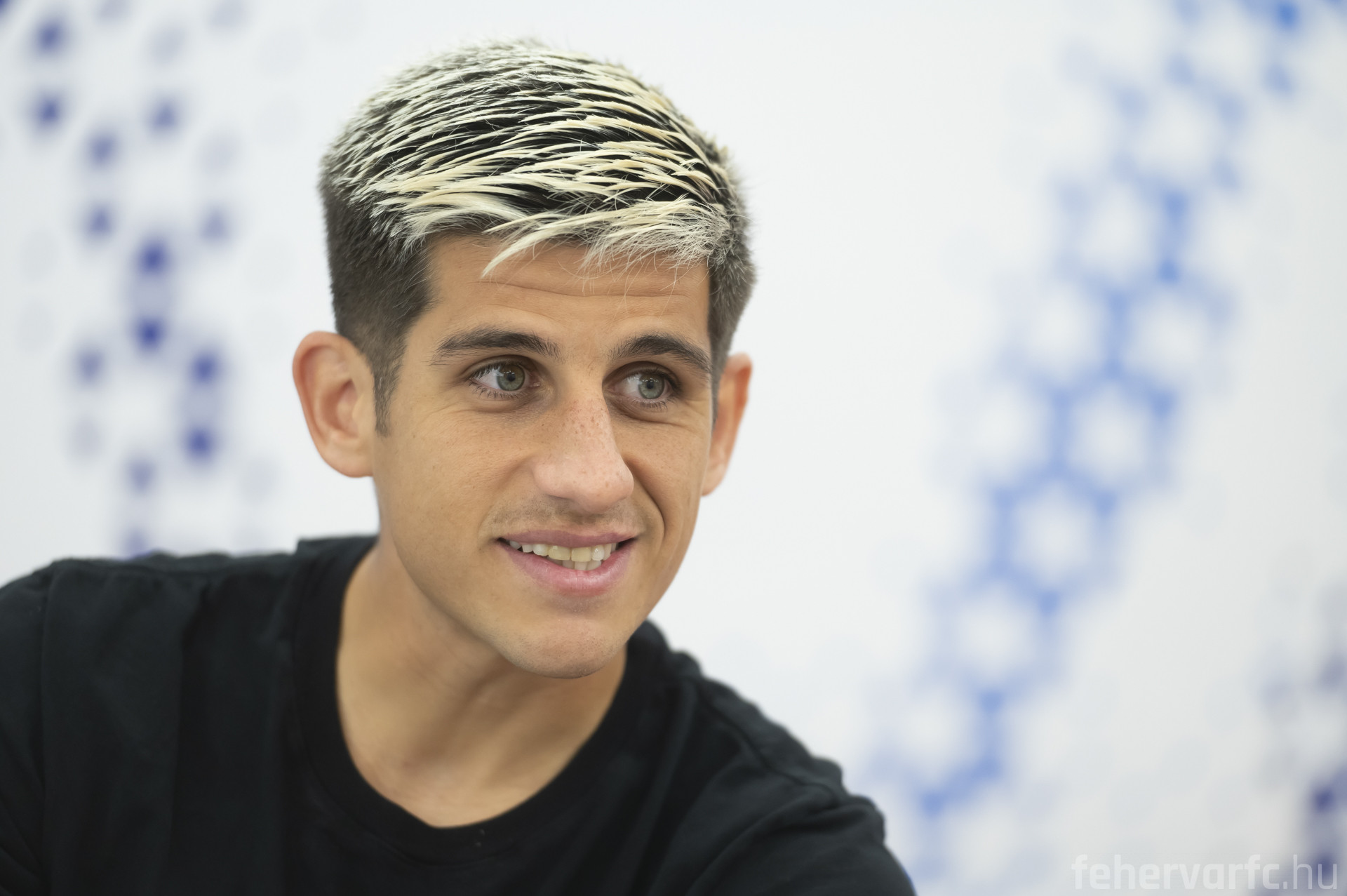
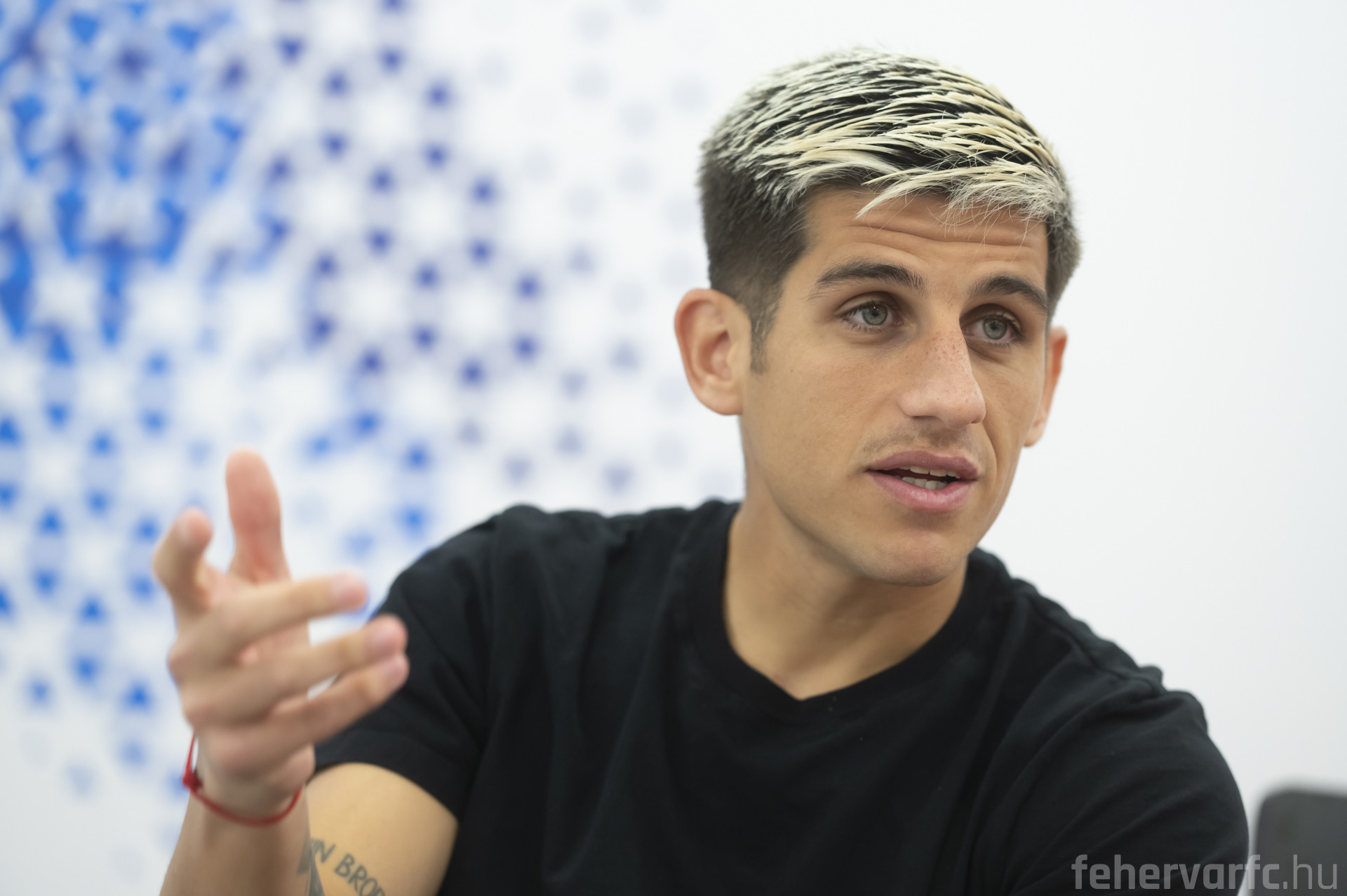
Author: David Rechnitzer

